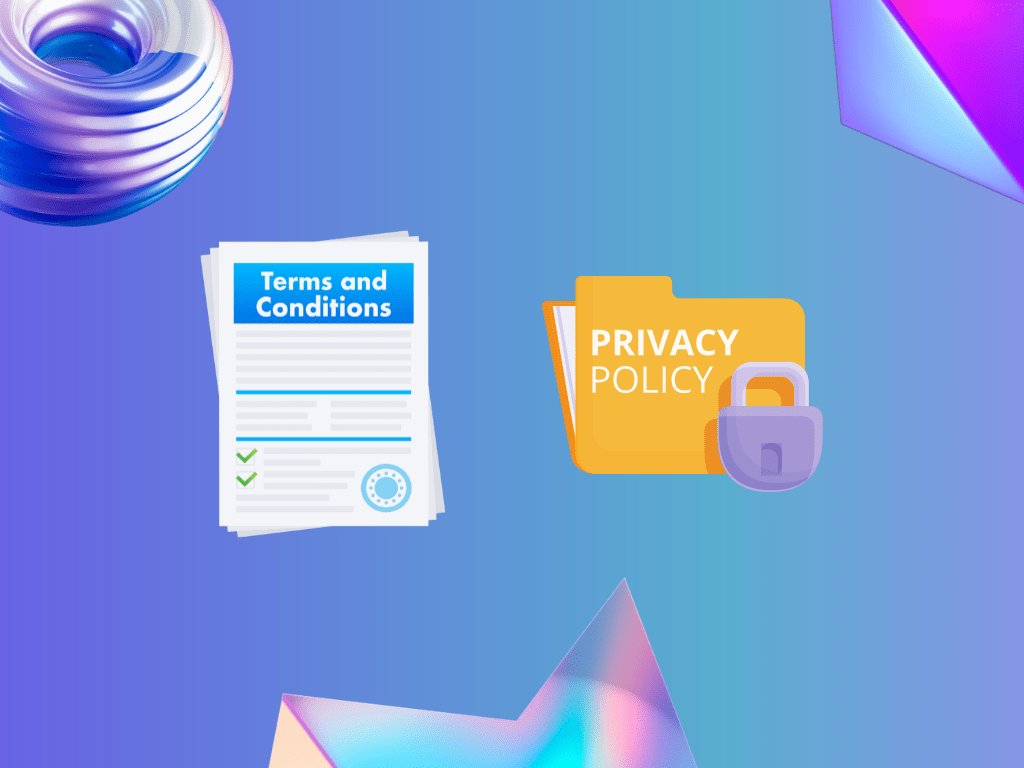Creating a website involves more than just designing an appealing layout and adding engaging content. You need to ensure that your website is compliant with legal requirements and protects the rights and privacy of its users. This is where legal policies come into play. Continue reading to understand the importance of legal policies for websites, and learn how to generate them yourself instead of paying hundreds or thousands of dollars to have them written for you.
What are Legal Policies for Websites?
Legal policies are written documents that outline the terms and conditions of use, privacy practices, disclaimers, and other important legal information related to a website. They define the rights and responsibilities of the website owner and the users, creating a legally binding agreement. These policies are typically available on a separate page or in the footer of the website and are accessible to visitors.
Importance of Legal Policies on Your Website
Implementing legal policies on your website offers several key benefits:
- Legal Compliance: Legal policies ensure that your website meets the requirements set by relevant laws and regulations, such as data protection and consumer rights laws. Failure to comply with these regulations can result in legal consequences and damage to your reputation.
- Protection of User Data: Privacy policies are especially important for websites that collect user information. They inform users about the type of data collected, how it is stored, and how it may be used or shared. By being transparent about data practices, you build trust with your users and demonstrate your commitment to protecting their privacy.
- Risk Mitigation: Legal policies provide disclaimers that limit your liability for any inaccuracies, errors, or damages resulting from the use of your website or services. They help protect your business from legal disputes and potential financial losses.
- Establishing Terms of Service: Terms of service outline the rules and conditions for using your website or services. They define acceptable behavior, intellectual property rights, payment terms, and other important aspects of the user experience. By setting clear expectations, you can prevent misunderstandings and disputes.
Types of Website Policies and How to Generate Them.
There are several types of legal policies that you may need to include on your website, depending on the nature of your business and the services you provide. Let’s explore some of the most common ones and how you can easily generate them. You can use Termify to generate any of the privacy policies outlined below very easily and affordably. It costs less than $3 for all policies. Click here to generate your policies.
Privacy Policy
A privacy policy is a vital document for all websites that collect user data. It informs users about the type of information collected, and how it is used, stored, and shared. Privacy policies often cover topics such as data security measures, cookies, third-party disclosures, and users’ rights regarding their personal information.
Return & Refund Policy
E-commerce websites that sell products or services online require a return and refund policy. This policy outlines the terms and conditions related to returns, exchanges, refunds, and cancellations. It helps manage customer expectations and ensures a smooth purchasing experience.
Terms of Service
Service-based businesses often require a terms of service policy. This document defines the rules and conditions for using the services provided by the website. It covers aspects such as payment terms, intellectual property rights, disclaimers, and limitations of liability.
4.4 Terms of Use
Websites that serve users in various capacities, such as Software as a Service (SaaS) platforms or blogs, may have a terms of use policy. This policy sets out the terms and conditions for accessing and using the website, including any user-generated content.
4.5 Terms and Conditions
Terms and conditions serve as a general agreement between the website owner and the users. They cover a wide range of topics, including intellectual property rights, dispute resolution, termination of services, and governing law. This policy sets the legal framework for the relationship between the website and its users.
4.6 End User License Agreement (EULA)
EULA is commonly used for software applications or digital products. It outlines the terms and conditions under which users are granted the right to use the software or product. EULAs typically cover license restrictions, intellectual property rights, and any disclaimers or warranties.
4.7 Disclaimer
Disclaimers are important legal statements that limit the website owner’s liability for various issues. They often cover areas such as accuracy of information, professional advice, third-party content, and external links. Disclaimers help protect the website owner from legal claims arising from the use of the website or reliance on its content.
How to Generate Legal Policies for Your Website
Having your business or company lawyer draft these policies for your website will be ideal. However, not all businesses — especially small ones — have the capacity to hire a lawyer.
As an alternative for small businesses, you can generate these policies online for a small fee using any policy generation website. My recommendation is Termify because of how easy it is to use and its cost-effectiveness.
I hope this was helpful! Fell free to leave a comment below if you have any questions.



